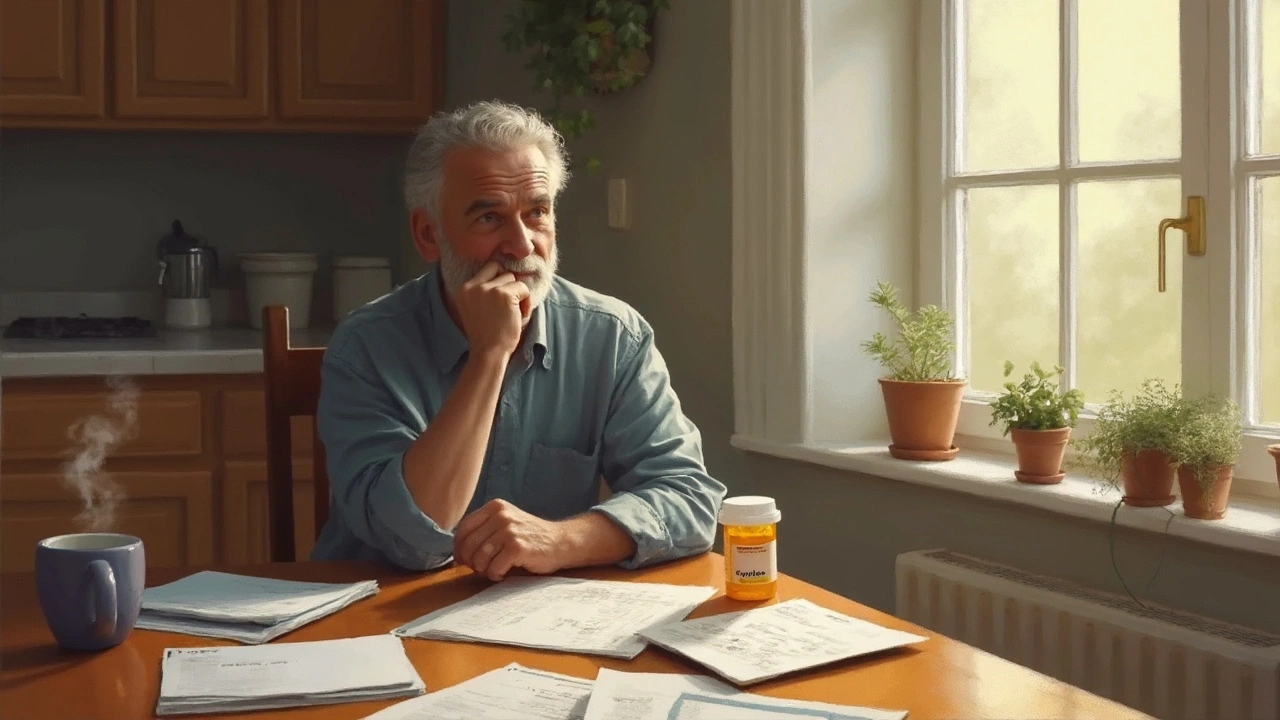Mental Health: Simple Tips & Trusted Info
Feeling stressed, anxious, or down? You’re not alone. Mental health matters just as much as physical health, and the good news is you can take small steps every day to feel better. On this page we’ll break down easy habits, quick coping tricks, and the signs that tell you it’s time to reach out for professional help. No jargon, just straight‑forward advice you can start using right now.
Everyday Coping Strategies
First up, let’s talk about habits that fit into a busy schedule. A short walk outside, even for five minutes, can reset your brain and lower cortisol, the stress hormone. Try pairing it with deep breathing: inhale for four counts, hold for four, exhale for four. Do this three times before you head back inside. It’s simple, takes less than a minute, and you’ll notice a calmer mind.
Another win‑win is a nightly routine that signals to your body it’s time to wind down. Turn off screens at least 30 minutes before bed, dim the lights, and read a few pages of a book or write down three things you’re grateful for. This practice trains your brain to associate bedtime with relaxation, making it easier to fall asleep and wake up refreshed.
When anxiety spikes, grounding techniques can pull you back to the present. Look around and name five things you see, four things you can touch, three sounds you hear, two smells, and one taste. This 5‑4‑3‑2‑1 exercise interrupts racing thoughts and brings calm in seconds.
When to Seek Professional Help
Self‑care is powerful, but it’s not a replacement for professional support when you need it. If you notice any of these signs lasting more than two weeks—persistent sadness, loss of interest in things you used to enjoy, trouble sleeping, or thoughts of self‑harm—it’s time to talk to a therapist or doctor. Reaching out isn’t a sign of weakness; it’s a smart step toward feeling better.
Telehealth options have made therapy more accessible than ever. Many platforms let you connect with a licensed professional via video or chat, fitting appointments into a lunch break or after the kids are in bed. If cost is a concern, check if your health insurance covers mental health services or look for community clinics that offer sliding‑scale fees.
Medication can also be part of the solution for conditions like depression or anxiety, but it’s only one piece of the puzzle. Talk to a prescriber about potential benefits and side effects, and always combine meds with lifestyle changes for the best outcome.
Remember, mental health isn’t a destination; it’s a daily practice. By adding tiny habits, staying aware of warning signs, and knowing where to get help, you’re building resilience that lasts. Keep this page bookmarked, revisit the tips when life gets hectic, and share what works for you with friends or family—they’ll thank you for it.
Got a question about a specific mental health concern? Drop a comment below or explore our related articles on anxiety, depression, and stress management. The Informed Squid is here to guide you with clear, evidence‑based info every step of the way.

Cymbalta: Uses, Side Effects & What to Know Before Starting Duloxetine
Get the real story about Cymbalta (duloxetine). Find out how it works, why doctors prescribe it, side effects you might not expect, and tips for safer use. Quentin pulls back the curtain on real-life experiences, practical advice, and what to ask your doctor.
Categories: Medicine
12

Understanding the Link Between Celecoxib and Anxiety: What You Need to Know
Celecoxib, a common NSAID used to treat pain and inflammation, may have an unexpected connection to anxiety. This article delves into the potential link, exploring scientific studies, patient stories, and expert opinions to offer a comprehensive look at how this medication could impact your mental well-being.
Categories: Medications
21
